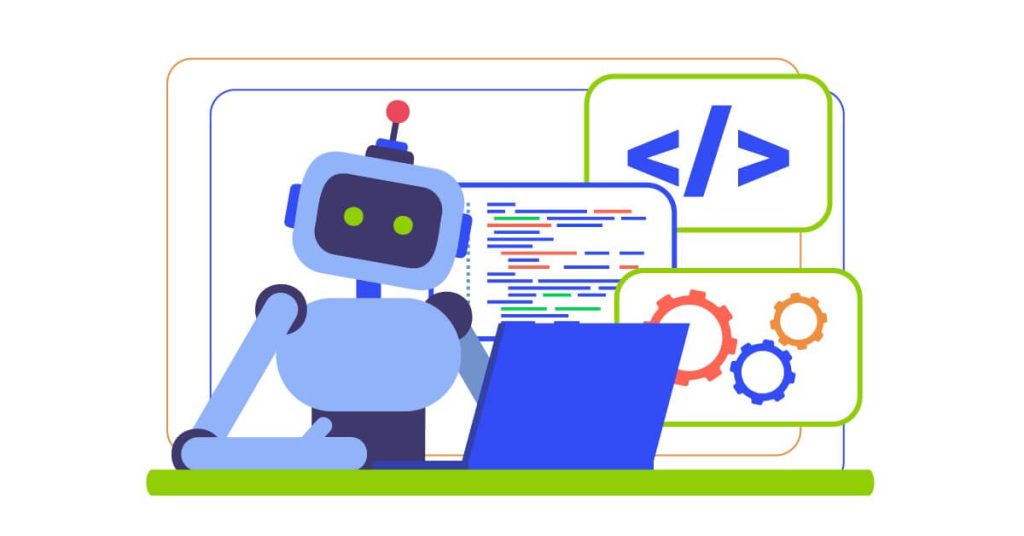International trade is a complicated and dynamic field. Businesses engaged in importing and exporting businesses have to deal with a never ending flow of rules, shifting expenses, and logistical difficulties.
Thankfully, technology is providing assistance. With a number of advantages, such as increased productivity, accuracy, and overall competitiveness, artificial intelligence (AI) is quickly changing how businesses run their international trade operations.
Understanding AI in global trade management
AI processes enormous amounts of data and automates complicated procedures with the help of different technologies:
- Machine learning
- Natural Language Processing
It turns conventional systems into dynamic solutions that can manage the intricacies of international trade when included in trade management software.
Key benefits of AI in global trade management software
Global trade compliance software comes with these benefits:
Improved accuracy
One of the main advantages of AI in global trade management software is increased trade compliance accuracy.
Ensuring adherence to various national regulations is one of the most difficult aspects of international trading.
AI-driven systems:
- Automatic analysis of trade laws and regulations.
- Reduce errors and penalties by identifying possible compliance issues.
- Help classify commodities according to HS codes, making sure they are declared correctly.
Improved compliance
Businesses must make sure they comply with constantly changing legislation in several nations, making trade compliance a complicated matter.
AI can be extremely useful for regulatory compliance in the following ways:
- Automated compliance checks: AI may examine trade paperwork to make sure they adhere to all applicable laws, lowering the possibility of customs delays and fines.
- Regulatory updates: AI is able to monitor modifications to trade laws and notify companies of any changes that may have an effect on their daily operations.
- Audit trail management: AI can streamline the compliance audit process by assisting in the maintenance of an extensive audit trail of trade activities.
Better document management
AI is excellent at automating documentation procedures, which are frequently laborious and prone to mistakes.
Benefits include:
- Faster processing of papers like invoices, bills of lading, and certificates of origin.
- Advanced document recognition that minimises manual interaction.
- centralised digital storage for convenient retrieval and access.
Reduce costs
Businesses can efficiently reallocate resources by automating monotonous processes.
AI can:
- Reduce human error and prevent expensive fines.
- Minimise the need for human labour for data entry and other duties.
- Reduce operating expenses by streamlining transportation routes and inventory control.
Predictive analysis
Timely choices are essential to global trade, and AI Business solutions offers unmatched insights by:
- Predicting changes in demand by analysing trade patterns.
- Providing insight into supply chain activities in real-time.
- Locating bottlenecks and suggesting preventative measures.
Data driven decisions
The nature of international trade is ever-evolving. Success depends on making well-informed decisions around sourcing, price, and logistics. AI can use enormous volumes of data to generate insightful information that can help make better decisions.
Here’s how:
- Predictive analytics: AI is able to forecast future demand and possible disruptions by analysing past trade data and market trends. This enables businesses to make the necessary adjustments to pricing schemes, sourcing arrangements, and inventory levels.
- Competitive analysis: AI is able to keep an eye on rival activity, such as pricing plans and new product introductions. This can assist companies in seeing new market opportunities and staying ahead of the curve.
Fraud detection and risk management
AI improves risk mitigation and fraud prevention by:
- Recognising irregularities in business transactions.
- Confirming the legitimacy of documents and trading partners.
- Keeping an eye on geopolitical developments to predict any disruptions.
Better inventory management
An essential component of international trading is inventory management. Profitability depends on keeping appropriate stock levels without going overboard.
AI can improve inventory control in the following ways:
- Real-time inventory: AI is able to monitor stock levels in real time and initiate purchase orders automatically when the stock hits a preset level. This removes the possibility of stockouts and guarantees a seamless flow of goods.
- Dynamic pricing: AI can dynamically modify product prices to maximise profits and market competitiveness by analysing competition pricing and demand.
Active risk management
With possible disruptions like supply chain interruptions, political unrest, and currency volatility, the global commerce environment is dangerous by nature. AI can be quite helpful in reducing these risks and safeguarding corporate operations.
- Predictive risk analysis: AI is able to examine past data and spot possible hazards that could affect supply networks, such as trade conflicts or natural disasters. This enables companies to minimise disruptions and create backup plans.
- Supply chain resilience: By finding alternate suppliers and maximising inventory levels, artificial intelligence can assist companies in creating supply networks that are more resilient.
- Fraud detection: AI is able to examine transaction data in order to spot trends in fraudulent behaviour and warn companies about possible dangers.
AI applications in international trade management
- Optimisation of customs clearance: It streamlines customs processes and cuts down on clearance time by guaranteeing:
- Accurate documentation
- Precise classification
- Trade compliance
- Demand forecasting: It helps firms manage inventories by enabling accurate demand forecasts through the analysis of consumer behaviour and market trends.
- Optimisation of trade routes: Based on variables like cost, duration, and geopolitical stability, AI recommends the best trading routes.
Challenges and future outlook
Even though artificial intelligence has many advantages, there are obstacles to its widespread use in international trade, including:
- High upfront costs for AI infrastructure.
- Issues with data privacy and adherence to regulations.
- Organisational resistance to change.
Using AI in small global trade businesses
Improved efficiency
Small businesses benefit from artificial intelligence since it simplifies operations and allows for well-informed decision-making. Automation has made it possible to save money and increase efficiency by automating tasks that formerly required a lot of resources, time, and extra workers.
Automation
Complex procedures like logistics and regulatory compliance are made simpler by AI. Because of this automation, small enterprises can easily handle these historically resource-intensive operations and concentrate on growing and expanding.
Streamlined documentation
AI writing technologies help create contracts, business letters, and trade documents. They can even convert documents into several languages, which facilitates cross-border communication.
Although companies may be hesitant to employ AI for complicated legal paperwork, ChatGPT and other similar technologies have proven to have a strong grasp of laws and regulations, indicating the possibility of producing trustworthy corporate documentation.
Upcoming developments
As AI technology advances, small firms can now access ever-more-advanced tools. The capacities of small businesses in international marketplaces will be significantly enhanced by these developments, which offer even more precision and functionality.
AI puts tiny international enterprises in a successful position in an interconnected world by providing them with strong solutions to increase operational efficiency and overcome the obstacles of global trade.
Wrapping up
AI in global commerce management software is not merely a fad. It is essential for companies looking to maintain their competitiveness in a constantly shifting market.
AI enables businesses to confidently handle the challenges of international trade by automating procedures, guaranteeing compliance, and providing actionable insights. The global trade sector is poised for a new era of efficiency and creativity as companies adopt artificial intelligence solutions.



